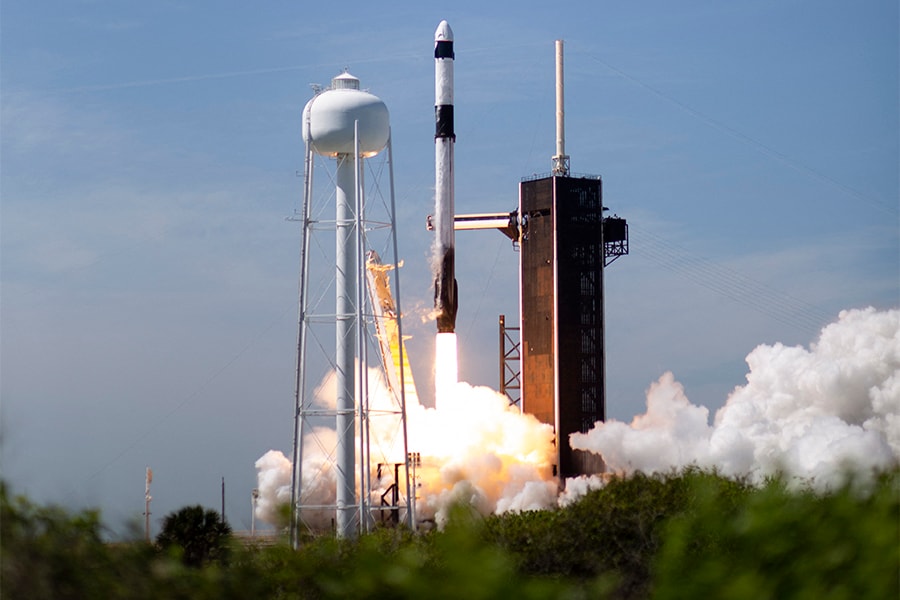
First 'crypto satellite' launched on SpaceX rocket
The nanosatellite Crypto1 will be launched via a SpaceX rocket launch in Florida on Wednesday
 A file image of Falcon 9 rocket taking off. ‘Crypto1’ - the first crypto satellite will be launched by a Falcon 9 rocket for SpaceX’s Transporter 5 mission; Image: JOEL KOWSKY / NASA / AFP
A file image of Falcon 9 rocket taking off. ‘Crypto1’ - the first crypto satellite will be launched by a Falcon 9 rocket for SpaceX’s Transporter 5 mission; Image: JOEL KOWSKY / NASA / AFP
The first crypto satellite will be blasted off into low Earth orbit by a SpaceX rocket launch in Florida on Wednesday. The launch will set the foundation for secure cryptography related to the blockchain in space.
Cryptosat is the company behind ‘Crypto1–the first crypto satellite–that will be launched by a Falcon 9 rocket for SpaceX’s Transporter 5 mission. The satellite, which is no bigger than a coffee mug, has been built using off-the-shelf parts. The satellite can prove vital as a tamper-proof platform for securing and launching blockchains and Web3 platforms. The platform would be physically unreachable. Trials related to blockchain satellite technology have already begun on the International Space Station.
“We’re basically joining the Uber of spaceflight. Everybody goes into the same orbit, and we’re one of the passengers,” said Yonatan Winetraub, the co-founder of Cryptosat.
Yonatan further added, “SpaceX launched a bunch of satellites, each one of them is doing something else. It doesn’t matter for our service. We are hoping to use our satellite to provide cryptographic services for our customers here on Earth, which won’t interfere with the other satellites at all.”
Cryptosat’s other co-founder Yan Michalevsky explained that the Crypto1’s platform would act as the first off-world ‘root-of-trust.’ It would act as a source ‘not dependent on other satellites by other companies’ that could be trusted within a cryptographic system. Such a source would, instead, provide hardware in orbit itself.





